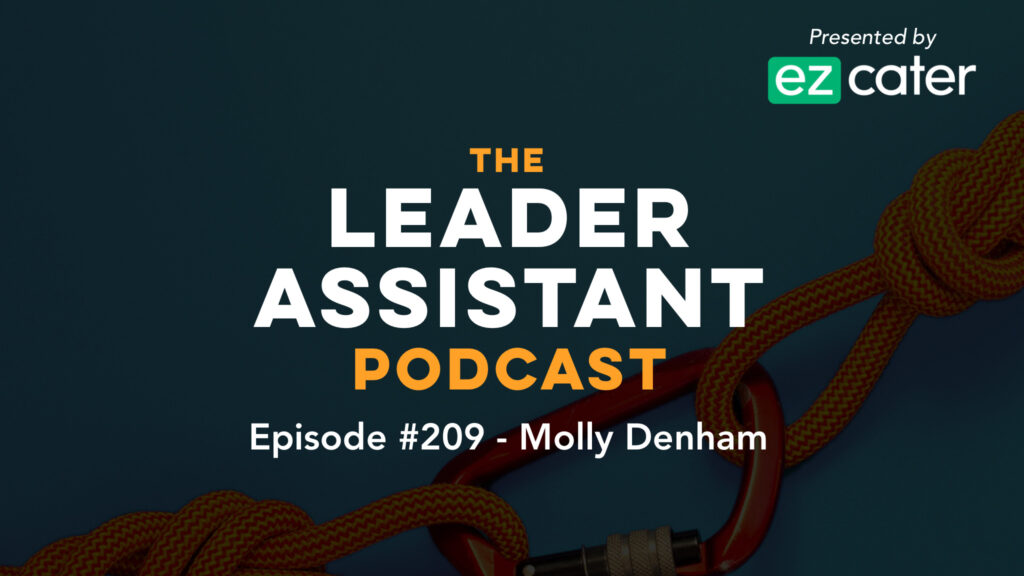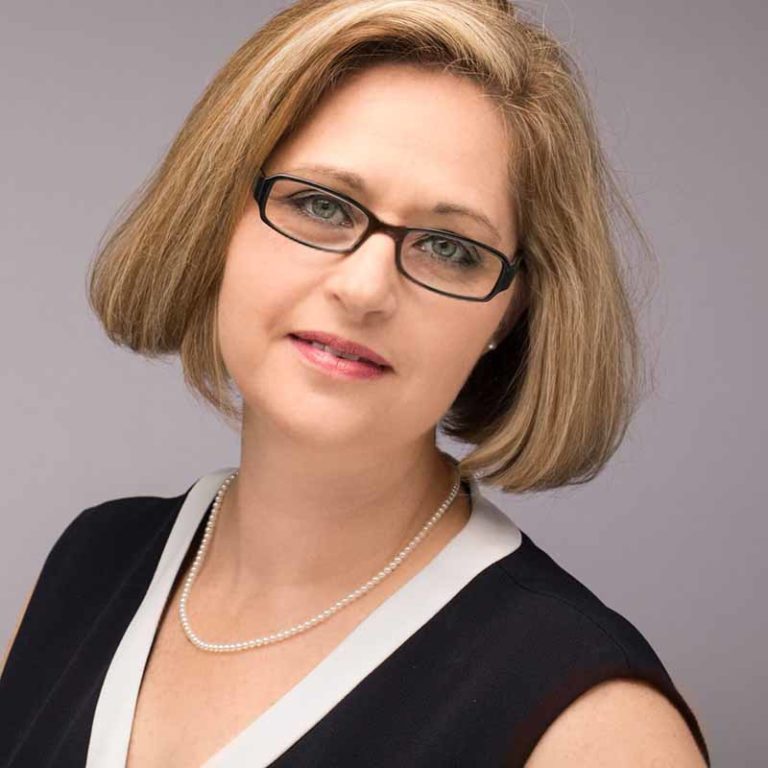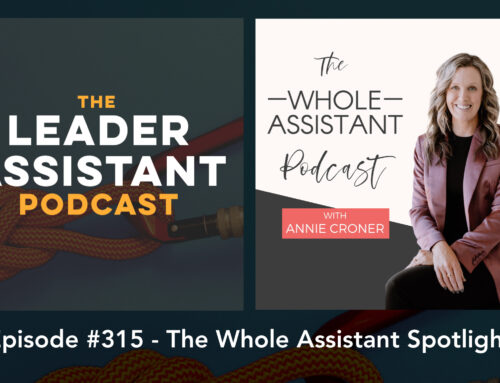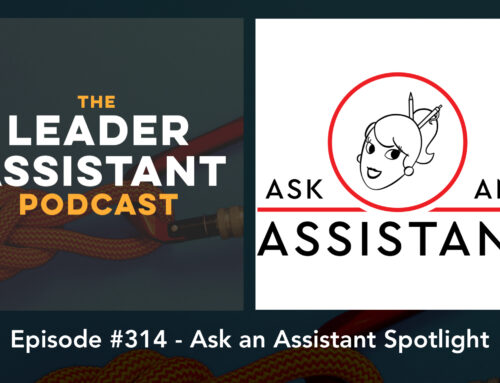Molly Denham spent 22 years as an administrative specialist in the US Air Force, working at every level and traveling all around the world.
In this episode, Molly talks about career paths and levels for administrative professionals, remote work, and education for assistants.
TIME STAMPED OUTLINE
00:07:07 Find the perfect match
00:07:48 Be selective in clients.
00:22:06 Do research and take time.
00:29:12 Trust your team’s productivity.
00:30:30 Hire the right people.
LEADERSHIP QUOTE
Don’t tell me no, tell me how we can make it a yes.
– General James Cartwright
CONNECT WITH MOLLY
ABOUT MOLLY
Molly Denham spent 22 years as an administrative specialist in the US Air Force, working at every level and traveling all around the world. Following her retirement from military Service, she started a one-woman business providing virtual administrative support to retired General Officers and independent consultants in the defense industry.
During the COVID shutdown, she watched businesses struggle with navigating a remote workforce. Molly took the lessons learned from her years as a virtual assistant and turned them into a new business model for hiring administrative professionals. Believing the future holds an increase in the number of virtual workers, she created VEXA Services.
She then turned her attention to the lack of software options available for administrative professionals. She started VEXA Software with the sole purpose of developing software specifically designed for administrative professionals and their unique needs in today’s high-pace office and virtual spaces.
–––
THE LEADER ASSISTANT PODCAST IS PRESENTED BY EZCATER
ezCater is the nation’s most trusted provider of corporate food solutions — the best way for companies to order food for daily employee lunches, meetings, and events of any size or budget. ezCater’s simple-to-use platform provides a network of over 100,000 restaurants nationwide, business-grade reliability, food spend management tools, and 24/7 support from their highly trained customer service team.
To explore corporate food solutions or place a catering order, visit ezcater.com.
–––
THE LEADER ASSISTANT PREMIUM MEMBERSHIP
To learn more about how you can join growth-minded Leader Assistants, check out our Leader Assistant Premium Membership for ongoing training, coaching, and community.
THE LEADER ASSISTANT BOOK
Download the first 3 chapters of The Leader Assistant: Four Pillars of Game-Changing Assistant for FREE here or buy it on Amazon and listen to the audiobook on Audible. Also, check out the companion study guide, The Leader Assistant Workbook, to dig deeper.
LEADER ASSISTANT LIVE EVENTS
Check out our constantly updated schedule of events for admins and assistants at LeaderAssistantLive.com.
JOIN THE FREE COMMUNITY
Join the Leader Assistant Global Community for bonus content, job opportunities, and to network with other assistants who are committed to becoming leaders!
SUBSCRIBE
Subscribe to The Leader Assistant Podcast so you don’t miss new episodes!
You can find the show on Apple Podcasts, Spotify, Google Podcasts, Pandora, and Stitcher.
Join my email list here if you want to get an email when a new episode goes live.
LEAVE A REVIEW
If you’re enjoying the podcast, please take 2 minutes to rate and review the show on Apple Podcasts here. Each review helps me stay motivated to keep the show going!
—
EPISODE TRANSCRIPT
Molly Denham 0:00
Hi my name is Molly Denham from like services and today’s quote comes from General James Cartwright and his quote is Don’t tell me no tell me how to make it a yes
Podcast Intro 0:17
The Leader Assistant Podcast exist to encourage and challenge assistants to become confident game changing leader assistants.
Jeremy Burrows 0:31
With so much on your plate, wouldn’t it be nice if ordering food for the office were easy and reliable. My friends at easy cater our workplace catering pros helping you find food for everything from daily employee meals to staff meetings and special events. With easy caterers network of over 100,000 restaurants nationwide, you’ll have a huge variety of options near you for any group size, dietary need or budget. Your food arrives on time as ordered all supported 24/7 by easy caters team of experts. Visit easycater.com/leaderassistant to find out more. Hey, everyone, thanks for tuning in to The Leader Assistant Podcast. It’s your host Jeremy Burrows. And today I’m very excited to be speaking with Molly Denham. This is episode 209. And we’ll get some good conversation going with Molly in just a second. But if you want to check out the show notes, you can find them at leaderassistant.com/209. Leaderassistant.com/209. So Molly, welcome.
Molly Denham 1:43
Thank you. It’s great to be here.
Jeremy Burrows 1:46
What part of the world are you in?
Molly Denham 1:48
I am in Virginia, just outside of DC.
Jeremy Burrows 1:53
Awesome. And what’s maybe some personal Bauccio what’s a hobby or? You know, do you have kids pets?
Molly Denham 2:02
I do have kids, I have two grown children. I have two grown children who are out of the house. And then we have a retirement surprise who is an eight year old now. And so that keeps us busy. And I am also in my vast amounts of spare time I bake as a relaxation.
Jeremy Burrows 2:23
Nice. Love it. I was gonna say what’s a recent thing you bake.
Molly Denham 2:27
I made sugar cookies for a Girl Scout girls weekend that I had last weekend. They were little penguins and balloons with the all the ladies names on it.
Jeremy Burrows 2:39
Nice, nice. I’m sure they were delicious. So tell us about your career? What, uh, what brought you into the administrative world? And yeah, what are you up to? Now? Let’s kind of give us a history.
Molly Denham 2:54
Absolutely. So I have been in the admin field for over 30 years, I started out in the Air Force, and I joined the Air Force when I was 17. And admin is the career field that they put me in. So I went with it and fell in love with it. I did that for all 22 years of my career. And then when I retired from the military, I had a boss who had also retired and needed some help after his retirement. And so I helped him out. And he said, Well, I will pay you to do this. And I thought, well, that’s pretty nice, I could probably turn my skills into something that I could do post retirement. And then so I was working for him pretty much as my only client, just him and I working together virtually. And then COVID hit. And I had a lot of people come to me saying, you know, because I’ve been doing remote work for about seven years by then. So COVID hit and I had a lot of people come to me saying we need help, you know, how do we do this remote work? And it was more than I could take on? So I thought well, you know, it’s obviously an area that needs some help. So I started Vixa services, which is an actual virtual administration agency. So I employ other admins to fill that void where people need some help, but maybe they don’t need a full time office help. And I’ve been doing that now for two years. And then during that time, I also had been noodling around with the idea of creating software because there’s there’s not a whole bunch out there specifically designed for the admin field. And so talk to a friend of mine who is a programmer, and I said, I’ve got these ideas. It was really just yellow stickies on a wall and it was just a bunch of yellow stickies. And I said, I’ve got this idea. What do you think about creating software that will do this? And he said, Absolutely. Only we could do, we could do anything. And so. So I started Vex a software. And we are building software now. So this specifically designed for admin professionals.
Jeremy Burrows 5:12
Wow, that’s great. So we’ll talk about the software here in a second. But what what’s the for vexes services? What’s kind of your model? Is it part time contractors? remote assistance from all over? Are you do you hire a few full time assistants? And then they each, you know, support a couple of different clients? How does your firm work?
Molly Denham 5:35
Right, so I have employees all over the US from multiple states. It’s all virtual work. And they do have multiple clients, I really only have one admin that has one full time client, because it’s, this person needs so much assistance. But the beauty behind remote work is you don’t have to sit it at a desk for eight hours. So you can do two or three things kind of at one time. So you can juggle multiple clients. And so that’s what I do I provide that administrative support. Mainly my clients are independent consultants. I do have some starter businesses, when they don’t really have the funds for full time admin, but they still need the help they need somebody to get them organized. And an independent contractors
Jeremy Burrows 6:30
about how big is your team right now?
Molly Denham 6:33
Right now I have six employees. And they’re in, like I said, in multiple states. And we’re covering nine clients right now. So it’s small, but but growing and doing well.
Jeremy Burrows 6:46
That’s great. And I know a lot of people we’ve I’ve talked to a lot of different virtual assistant contractors in firms that hire virtual hire vas, what’s one of your top tips for those listening who want to get into the remote executive assistant world.
Molly Denham 7:07
So my top tip to them would be, you have to find the perfect client EA match. So one of the things I did was I created software for me, that matches my client to the right EA, it’s more than just skills, you know, the skills anybody can do. But because of the relationship that an admin has, with a principal, you really have to have the personalities that go together well, you can’t have one person be a chatty, Cathy and the other person be an introvert, it just won’t work. And so, so one of the things that that I would tell people is when you’re out there actively looking for clients, be selected, there’s there are clients out there, but be selective and making sure you have the right client, so you get the right relationship. And that will make it work.
Jeremy Burrows 8:04
And it’s great tips. So tell us a little bit more Molly about the software of extra software. What what was kind of the primary, or what is the primary use case, that or problem it was on that whiteboard or on those sticky notes.
Molly Denham 8:23
It was not even technical enough to have a whiteboard, it truly was sticky notes on a wall. So my software is called vast. And what it does is it it takes the calendar functions and the contact functions that we as executive level admin use, and just gives us that much more. So for instance, in the calendar, whether you use Google or Outlook or any other calendar function, you have your basic your basic items, you know, where are you going when and who’s invited. If you have any details outside of that, the only place you have to put it is in that big block of text that Google and Outlook lately for you in the details area. So what I have done is I have created forms that are specific to the event type that have spots for all of those details. And it sits on top of Google and it sits on top of Outlook. So you don’t have to get anything new. You don’t have to buy a complete new software package. It sits just right on top of it. And it just provides organization. It came about because I have a client who does a lot of overseas travel. And I was putting everything all of the details, his flight details, you know what seat he’s in, what’s his confirmation number? What’s the time difference between when he you know, get leaves and when he lands, all of those little things that he wanted to know and He was he would get ready for his trip. And he would say, Molly, I don’t have any of the details. And I would tell him Well, sir, it’s it’s in your calendar. He said, But it’s but it’s just a big block of information. He goes, I can’t sift through all that I don’t have time to sift through all that. And so I thought, Well, why are there not forms for administrative assistants because we have these details that we’re responsible for. And these are details that our principal needs to know. And they’re not going to sift through a block. And so I created these forms based on the event type, and then the same concept or the context. So as an admin, we don’t collect you know, just your phone number and your email address and your home address. You know, I collect a lot of information on people, I collect things like, What food do they like? Do they have any allergies? What’s their vehicle information? You know, because I’m constantly doing parking requests. I do a lot of I’m in the defense industry, that’s where most of my clients are. So I have I know, their security clearance. I know, you know, some people I know their social security number or where they’re, you know, where they were born, you know, their kids names all of that. And again, the only place in Google or Outlook is to put it in that detail section. So we have created forms for contacts that has that information in an organized fashion.
Jeremy Burrows 11:28
Okay, nice. So it’s just kind of like, what’s the word I’m trying to think of? Like a sports car version of right of your calendar?
Molly Denham 11:45
or so? Yeah, absolutely. Google and Outlook are so big, they cater to the lowest common denominator, because that’s what they have to do. Because they are so big. We need more, we need and it needs to be organized. And so that is what I’m offering to our community.
Jeremy Burrows 12:03
Nice, awesome. Excited to check that out. Vex a software.com. Right. Yes, awesome. And we’ll put the links in the show notes, leaderassistant.com, slash 209, for all of Molly’s networking, and websites and all that. So Molly, let’s talk a little bit about Administrative Professionals as far as career paths are concerned, you said you, you know, you got went into the Air Force, they put you down the administrative career path? How? How long was it until you realized that this is a this is a career? And this is a respectable profession with a path? Or did you have to create your own path throughout your time there? Yeah, tell us a little bit about your, your career path. And then just in general, the career paths and lack thereof, in a lot of cases for Administrative Professionals.
Molly Denham 13:05
So that, for me, the nice thing was being in the military, the military has a defined career path, they have schools that you have to go to, at the very beginning of your career, your career for a couple of years, and then you have a secondary school that you have to go to, and then you do your career for a couple more years, and then you have a tertiary school that you have to go to. So it’s it’s a defined path that you know, you have defined skills that you have to know you have time that you have to put into the job. You know, there’s continual learning in between each one just to keep your but it’s very, it’s very defined, as the military is very rigid, and very scheduled. And when I retired, I found I was trying to continue those skills and try to figure out okay, what did I miss from, you know, or what’s different from what I learned in the military to what is in the civilian world. And the problem that I found was that there’s tons of training out there, but there’s no again, no organization to it, there’s no structure, saying, when you’re new, this is where you should go, this is this will help you get started. When you’re in the middle of your career, this is what you need to know, if you are going to elevate your career past you know, certain level, these are the additional items you need to know there wasn’t anything like that to help me. And it was very discombobulated for lack of a better term. And there is no at least as far as I can tell, structured career path for the admin community, which is sad because it’s a great career field. I absolutely love what I do. And and I have to credit the military with giving me something that you know some sort Have structure that I could use for I mean, I used it for 22 years, and, and built a great career out of the military. So I just I think the civilian sector needs something that will help guide people.
Jeremy Burrows 15:17
What was maybe an example or two of the differences in those levels, if you will, that you worked your way up, you know, within the military structure? That makes sense. So
Molly Denham 15:31
yeah, so in the military, you know, and it’s, and it’s every career field, you know, you started out, they call it a three level, so you started now, this is for Air Force, you know, some of the other services may be a little different. But in the Air Force, you started out as a three level, and they teach you the very basics, you know, they, okay, I’m a little older than, than most of the other people probably listening. So it was before computers. So I did have a typewriter. So they taught us how to tight. They taught us how to, you know how to do basic filing, of course, because made good remember, this was paper. So you have the big file cabinets, they taught us how to how to organize files, and you learned how to write a letter, and you know, the verbiage you know, to use and the proper formatting and those kinds of basics, you learn those basics, and you use those basics for you know, three to three to five years, you know, it’s not just, Hey, learn the basics. And then let’s go on to the next one, it’s learned the basics and use the basics. And then you move to the five level. And the five level gives you a broader understanding of your career field, and in this case, was when computers were coming out. And so we incorporated computers into it, we learned you know, how to take them apart, we learned all of the all of the pieces to a computer, how it all works together, how the Internet was, was created, how it works together, you know, it taught us all of that, at that next level. And then again, you use those skills for a few years. And then you go to your seventh level, which was your, which was your senior level, which they did, you know, then you you incorporated leadership traits and and you go from being the doer to the manager and the mentor for the others who are the three and five levels coming up. So it was really, you know, a staggered progression. And you just build on top of of the next one.
Jeremy Burrows 17:36
Yeah, so it was kind of like, Alright, here’s the basics, here’s a typewriter, here’s how to type. And then it was adapting was interesting about that progression. As I was listening to share that journey is, you know, you could kind of fast forward to today, and there’s, you know, or, you know, my career where I learned Microsoft or I had, I think I had a shoot, I can’t remember what they were called there were those, oh, the palm TREO, or whatever, with the X ray letter typewriter on it. And then I had to learn that you know, and then I’m learning, and then the Microsoft, I was in the Microsoft world. But then like Mac came out with these, these laptops, the PowerBook and iBook and all this and all of a sudden, I’m learning the learning that software. And then, you know, fast forward 10 years or so, I’m learning I go to artificial intelligence software startup. And now I’m learning AI and natural language processing and learning about all these different things I’ve never, you know, heard of, and you know, it’s in the now it’s like the most recent thing it seems like it’s Oh, it’s all about this chat GPT and conversations salutely
Molly Denham 19:01
All all that and not only that, but you know, you’ve got to put in cybersecurity and how to safeguard everything it allows it allows you not just your career to expand for the basics, but expand to whatever happens to be the technology of of the day.
Jeremy Burrows 19:27
Right and it’s so it’s like the technology the the tools so it’s kind of two sided it’s probably more than two sides but there’s the tools of the trade that you have to learn and adapt and master as you work your way up. But then there’s also like you mentioned the leadership and the management and supervising and strategy and all that do you have to kind of master on your way up as well. So
Molly Denham 19:53
absolutely, you know and and, you know, as you get you know, specially with technology you know as you go further in your career, it’s difficult to mentor or manage younger individuals, if you don’t understand the new technology. So you’ve got to do both.
Jeremy Burrows 20:14
Yeah. What about the education? So like professional development and education? I’m, it sounds like you had that built in to your, to your career pathing. And like, the Air Force was pretty good about that. But
Molly Denham 20:32
oh, yeah, they, they really were, I mean, it was, there was actual school, I mean, it wasn’t, you know, just online, or, you know, books or what have you, there’s, there’s an actual school, you go to, you know, for each for each level, and, you know, you do a lot of networking, which is really nice. You don’t, you know, see other people and what is being done around the Airforce and other areas. So that, you know, that was nice. And then it’s just standardized, you know, the military obviously, is a little bit different than everywhere else, because you’re moving constantly. But because they are they have standardized learning. I can I could go from, you know, I was in Nebraska, you know, so I was in Nebraska, and I went to England, and everything was exactly the same, I had this, the skills weren’t the same, I was taught the same as everybody else. So I was put into, I went from being a executive assistant to being in charge of a section that had the websites, they had the Freedom of Information Act, and it was a whole bunch of the different skills. But I had already been taught that as part of my standard of learning.
Jeremy Burrows 21:42
Nice. That’s great. So then, what about what’s something you would recommend for assistants who are in organizations or companies, in environments that do not have that built in education, and they have to kind of fight for it or figure it out themselves?
Molly Denham 22:01
And, and most of them, unfortunately, don’t, you know, because admin, that’s not what that’s not what their company’s business is. So you know, I get that. My recommendation is to do a lot of research, unfortunately, it will take time in the front end, because I’ve gone out and there’s great training, you know, pace and, you know, that’s ASAP has great train, there’s lots of it out there. But it’s overwhelming. To me, I would after my retirement, I went out and I was just overwhelmed by the amount of training, you type in admin training, and the amount of information that you get back is just too much. So just take your time, and don’t just jump into first thing that you see, really look at what skills they are teaching you, and, and make sure that they are skills that you can use in the future. If that, if that makes sense.
Jeremy Burrows 23:05
Right? Yeah. Yeah, I like to my philosophy is I like to learn things that I’m actually going to use now, or in the near very near future, because you can remember the things better if you actually apply it.
Molly Denham 23:25
Absolutely.
Jeremy Burrows 23:27
So I like to like people like, Oh, I’m gonna go take this, and then I’m gonna take this and say, like, Well, why don’t you look at what you have to do in your job in the next six months? And right, focus on a training or development that will help you in the near future? And that way, you’ll really learn it.
Molly Denham 23:44
Yeah, absolutely. And, and, you know, do do an actual, you know, unfortunately, you know, there’s not a career path out there the way that the military had given me a career path. But there’s lots of tools out there where you can create your own. I know that all things admin, they did a great administrative career plan, it’s blank, you fill it in, and it kind of gives you a starting point. So you’re not just looking at a blank slate. So I would recommend, you know, really taking the time to figure out, Where am I and where do I want to go? What is it that I want to do and what skills am I lacking? And what skills do I have, but maybe they’re a little bit older skills, you know, I’ve been through the Microsoft Office training, but I went through it back in, you know, the early 2000s. It’s not going to help me much today. So you know, if that is what I need, then I would probably need to do a refresher. Yeah, so
Jeremy Burrows 24:47
Yeah, makes sense. Well, Molly, thank you so much for chatting to kind of wrap things up. What’s what’s kind of, there’s that whole argument that you know, during COVID It was like, oh, remote work is awesome. And you know, you can actually get a lot done if you work remotely and virtual and all that fun stuff. And then now it’s like, I think I heard, you know, recently Disney is making people come back to the office is there’s a bunch of other companies that are doing the same. And they want you back in the office now and this and this. And so what are your thoughts? You’re running a virtual firm on the whole debate of virtual versus at home?
Molly Denham 25:29
So I think I think there’s enough playing field for everybody. And I think it will depend upon I think, personally, it depends upon what your company needs. And so when, when I first started with the agency, I had a couple of clients, and they said the exact same thing. Now this was pre COVID. Keep in mind, this was, I don’t know, you know, my admin is supposed to sit right outside my office, you know, why aren’t they sitting outside my office? And so I countered with, what is it that you think the person needs to do there? What is it that they have to physically do for you in the office? Well, and it came down, most of the time it came down to well, I need somebody to open the office in the morning, or I need somebody to have coffee or, you know, whatever. And I said, Okay, well, that’s, that’s not what you know, I mean, granted, those are duties that traditionally admin do. But if you want an executive assistant, and that’s what you’re concerned with, then I think you’re overpaying somebody to get you coffee or to open your doors and stuff. So I think comes down to what does that particular job physically have to do? If it physically needs to be in the office, then great make make your make your Office environment and in person, if it doesn’t, and you want, you know, a little bit more freedom and flexibility, then make it virtual, there’s a lot of people who are doing hybrid. And there’s plenty of people out there that like both my husband and I are both admin, I love working from home and being a virtual worker, I can do doctor’s appointments, I can do vet appointments, I’m here to pick my daughter up from school, you know, if she gets sick, I’m here. My husband hated it. He absolutely could not wait to go back to the office. He just he liked that social environment and being at the office. There’s I say, there’s more than enough for everybody. But it has to be a smart decision that the companies and leaders within the companies make and not just, it’s because we’ve always done it this way.
Jeremy Burrows 27:44
Yeah, I think it’s, it’s, you’re right, like everyone is different. So you know, I’m on the work from home camp, and I don’t know that I would ever if, if I can help it, I don’t think I would ever go back into the office either. And so, but that, so in other words, there should be you should know what you want and know what you work best, the environment you work best in. But then, you know, it’s okay. If a company wants to say, Oh, we want everybody in the office and whatever. Because people have a choice, whether or not to work
Molly Denham 28:19
there. Absolutely.
Jeremy Burrows 28:23
It also makes it, you know, makes the CEOs and HR and the CFO and you know, the gurus that are trying to figure out like, Oh, these these leadership teams saying, Hey, what are we going to do? How are we going to hire the best talent? Well, gotta be flexible if you want the best talent.
Molly Denham 28:43
Right. And it’s not only just a talent issue, it could also be a budgetary issue, a virtual worker, cost less than an in person, we have less overhead, the pay is less, because you’re not truly paying somebody for 160 hours of work a month, you know, you may be able to pay them 100 or 80 hours and still get the same type of productivity that you got before. It just it really all depends on your particular situation. And what your company is trying to achieve with that particular position.
Jeremy Burrows 29:24
Yeah. Yeah. I think
Molly Denham 29:27
it scares some leaders. And in all honesty, I think it scares some leaders, because it’s a lot of work behind figuring out what the best what the best fix is and what the best fit for everybody is that’s a lot of work and it can feel overwhelming to to a leader. And it’s just easier in some cases to say, Everybody go back to work, or everybody is remote. That’s an easy decision to make. It’s harder to try to figure out how to get the right balance.
Jeremy Burrows 29:57
Yeah, and it makes you know, it makes people think well If I can’t see them, they’re not working in it. And it really not true. It really illuminates the the weakness in a lot of these companies in a lot of these teams in the sense of they don’t even have. They’re not organized enough to know what, what their team needs to produce. And so they like to just have everybody close so that they can see the busy work and feel like oh my try.
Molly Denham 30:27
And yeah, and if you if you if you truly feel hey, if I’m not there to watch them, My people are not productive, then maybe you haven’t hired the right people. Right? Yeah. So there’s a lot of ways to peel this particular onion.
Jeremy Burrows 30:45
Mm hmm, Somali. Well, thank you so much for being on the show. What’s What’s the number one place top place, and I’ll share all your links in the show notes. But what’s the number one place for people to reach out to you?
Molly Denham 30:56
LinkedIn? Okay, LinkedIn, definitely.
Jeremy Burrows 31:00
Awesome. Well,
leaderassistant.com/209. For everyone listening, you can check out all the links to Molly’s LinkedIn and her website and all that and reach out and say hi, and check out what they’re doing and exa and Molly, thank you so much for being on the show. Thanks for the work you’re doing with the software and the VA service and all the administrative professional fun that you’re up to. So it’s been a pleasure to speak with you.
Molly Denham 31:29
Thank you so much, Jeremy. I really appreciate it and I enjoyed it
Unknown Speaker 31:42
please review on Apple podcasts.
Unknown Speaker 31:51
Goburrows.com








